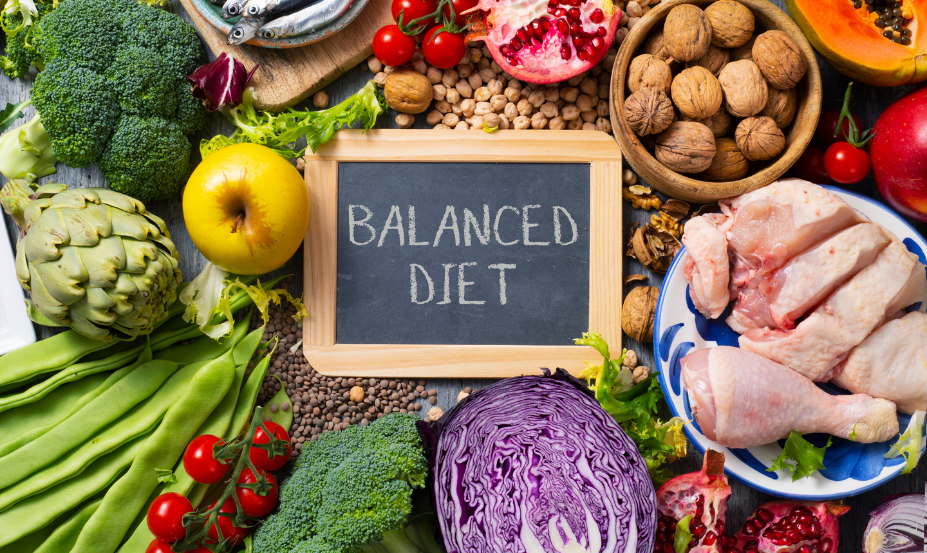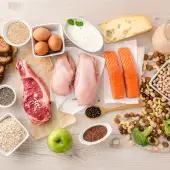In today’s dynamic world, maintaining a healthy lifestyle can often feel overwhelming. With so many diets, trends, and nutrition plans available, it’s easy to get confused. However, the foundation of any healthy lifestyle is simple: nourishing your body with the right foods in the right portions. This is where a well-structured diet plan comes into play especially one that’s centered around balance, moderation, and variety.

What Is a Balanced Diet Plan?
A healthy diet plan isn’t about restricting yourself or skipping meals. Instead, it’s about providing your body with the essential nutrients it needs to function optimally. This includes carbohydrates, proteins, healthy fats, vitamins, minerals, and plenty of water.
When you follow a structured eating pattern that ensures you’re not missing out on any essential nutrients, you’re following what’s called a balanced diet. It’s a way of eating that supports your body’s needs without overindulging in any one food group
Why a Balanced Diet Matters for Your Health
A nutritious eating routine offers numerous benefits. First and foremost, it helps maintain a healthy weight. When you eat foods that are rich in fibre, lean proteins, and healthy fats, you feel full longer and are less likely to overeat. This naturally supports weight control without the need for extreme dieting.
Moreover, the right nutrients fuel your energy levels, improve brain function, and support better digestion. Long-term benefits include reduced risk of chronic diseases such as diabetes, heart disease, and certain types of cancer.
Components of a Healthy Diet Plan
Creating a diet that fits your lifestyle means including foods from all major food groups. Here’s a simple breakdown:
- Carbohydrates
These are your body’s main source of energy. Go for whole grains like oats, brown rice, quinoa, and whole wheat bread instead of refined carbs
2. Proteins
Vital for muscle repair and growth, protein should be included in every meal. Choose from lentils, eggs, lean meats, dairy, nuts, seeds, and tofu.
3.Healthy Fats
Not all fats are bad. Healthy fats such as those found in avocados, nuts, seeds, and olive oil are essential for brain health and hormone regulation.
4.Fruits and Vegetables
These are rich in vitamins, minerals, fiber, and antioxidants. Aim for a colorful variety to ensure you’re covering the full spectrum of nutrients.
5.Water
Hydration plays a crucial role in digestion, energy levels, and overall health. Drink at least 8–10 glasses of water daily.
Tips to Create a Sustainable Meal Plan
Sticking to a nutritious diet doesn’t have to be boring or repetitive. Here are some practical tips to help you enjoy and sustain your new eating habits:
- Plan ahead:Preparing your meals in advance helps avoid impulsive eating and keeps you in control of your portions
- Keep it simple: You don’t need complex recipes to eat well. Basic, home-cooked meals with fresh ingredients work wonders.
- Avoid skipping meals: This can lead to overeating later. Instead, aim for 3 balanced meals and 1–2 light snacks each day.
- Limit processed foods: These are often high in sugar, sodium, and unhealthy fats. Opt for fresh or minimally processed options.
- Listen to your body: Eat when you’re hungry and stop when you’re full. Mindful eating plays a big role in maintaining balance.
Sample 1-Day Meal Plan
Here’s a simple example of what a day of healthy eating can look like:
- Breakfast: Whole grain toast with avocado and a boiled egg + a fruit smoothie
- Mid-Morning Snack: A handful of almonds or a piece of fruit
- Lunch: Brown rice bowl with grilled veggies, chickpeas, and a light yogurt dressing
- Evening Snack: Roasted fox nuts or low-fat yogurt
- Dinner: Grilled paneer/tofu with steamed broccoli and a small portion of millet or quinoa
This sample reflects how easy and enjoyable a balanced diet can be with the right planning.
Long-Term Success Comes with Consistency
The key to a healthy lifestyle is not perfection, but consistency. Focus on small, daily choices that add up over time. Whether it’s swapping soda for water or including a salad with lunch, these changes will slowly become habits. And when you fall off track, don’t be too hard on yourself—just return to your routine with renewed focus.
A balanced diet isn’t about strict rules. It’s about building a relationship with food that nourishes your body and mind. With thoughtful planning, mindful eating, and a positive mindset, you’ll be well on your way to achieving your health goals and feeling your best every single day.







